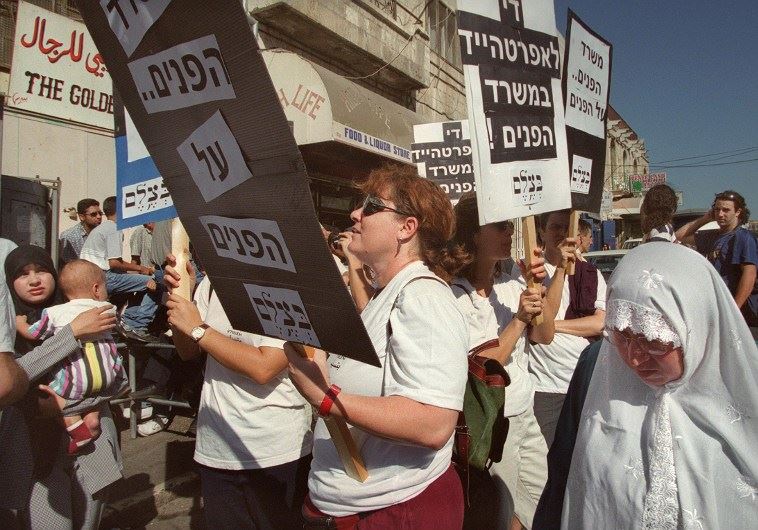Ban on national service at foreign-funded NGOs clears hurdle
In 2015, there were 12 postings for national service in organizations that would fall under the bill’s purview.
 Dozens of Israeli human rights activists of the B'Tselem group picket in east Jerusalem(photo credit: AFP PHOTO)
Dozens of Israeli human rights activists of the B'Tselem group picket in east Jerusalem(photo credit: AFP PHOTO)